The riddle of Europe's election season
- Published
- comments
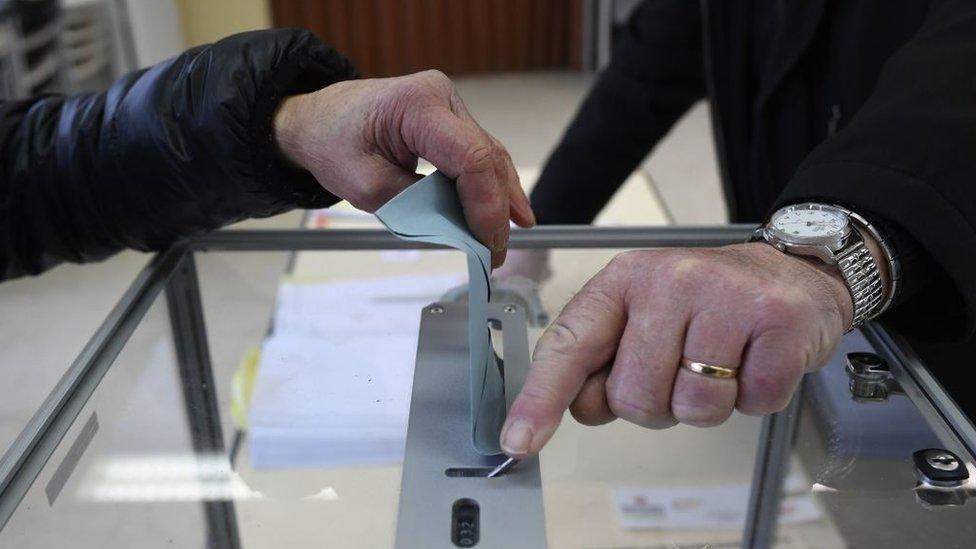
Many Europeans eye the months ahead with foreboding. They see anti-establishment parties on the ascendancy. Angela Merkel - for so long Frau Europe - may lose power. And the financial markets are skittish over the possibility of a Marine Le Pen victory in France. Every edge up in her poll ratings sends bond yields rising.
And yet an entirely different scenario may play out. It is quite possible that before the end of the year observers will declare that the Brexit-Trump tide has turned and that European integration has found new champions.
First to the politics: in the Netherlands Geert Wilders has a history of under-performing at the polls. Even if he emerges as the leader of the largest party after the elections in March, he will struggle to get a foothold in government.
The contest that preoccupies Europe's political class, however, is France. The conventional wisdom is that Marine Le Pen will win the first round in the presidential elections but be substantially defeated in round two. But France is on edge, gloomy and unsure of itself.
She has expanded her lead in the polls and closed the gap on her most likely challenger in the second round, Emmanuel Macron. Still, he retains a 16% poll lead.
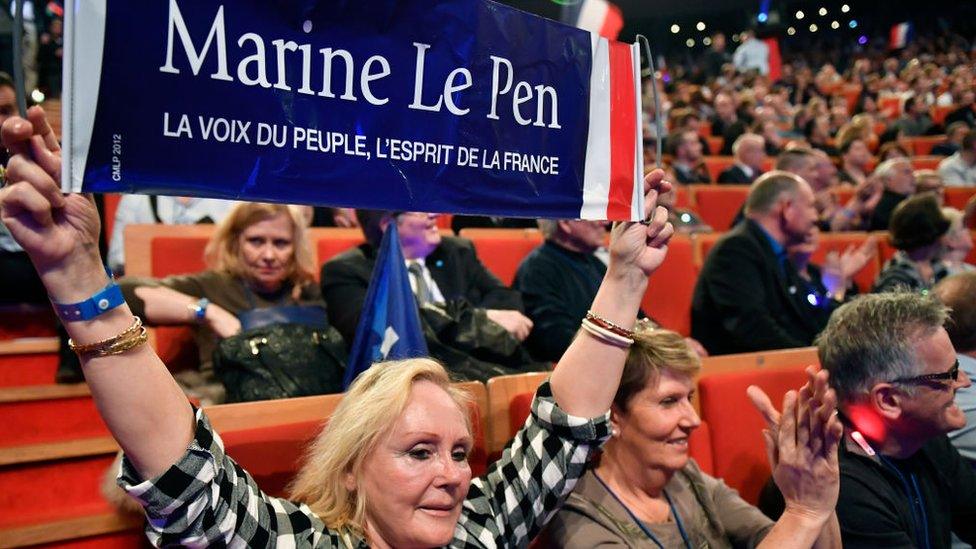
Marine Le Pen supporters: Many believe she will win the first round of the election
But observers no longer trust the polls, and they fear the unforeseen event that could turn even more voters against governing elites.
Yet if Marine Le Pen loses, as seems most likely, Europe could be facing an entirely different future. Currently the candidate most likely to win in France is Mr Macron. Yes, he's a novice: a man who has never been elected to high office. He has been drawing the crowds because he has sold himself as a new politician, neither left nor right.
As the campaign gets under way, Marine Le Pen will be scathing, dismissing Mr Macron as an international banker, the epitome of the failed global elite, and the man who was Economy Minister under Francois Hollande.
Mr Macron has yet to define himself, and he may yet stumble. But if he made it to the Elysee Palace, Europe and France would have a pro-European president, committed to the survival of the euro and the alliance with Germany.
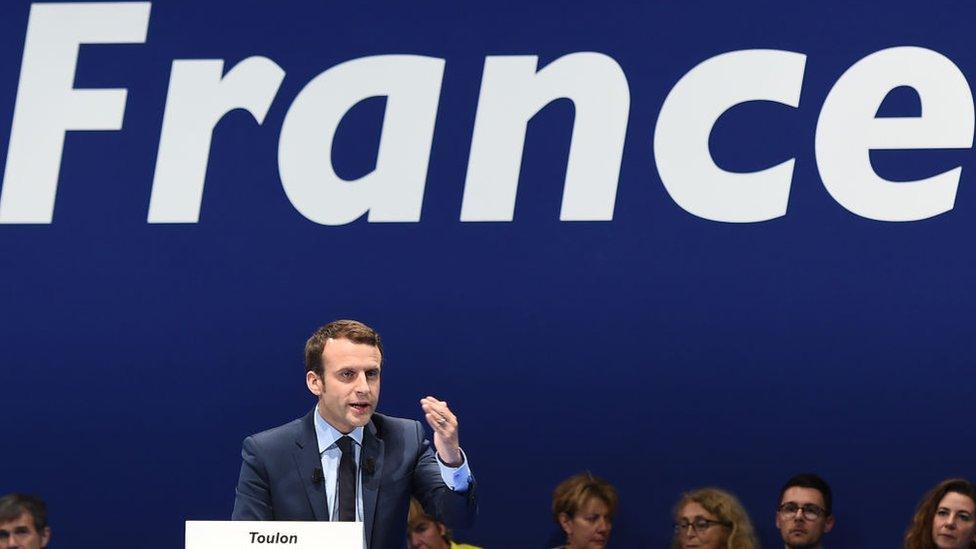
Emmanuel Macron has faced accusations that he is part of a governing elite
At the same time, Germany has grown more restless and more open to change. Some see Angela Merkel, who is hoping for a fourth term as chancellor, as weary and burnt-out. Some of her zeal for power has gone. And many Germans will forever blame her for allowing more than a million refugees into the country.
Her main political opponent, the Social Democratic Party, has a new standard bearer in Martin Schulz. In the past month, the SPD has surged 12 points, even surpassing Mrs Merkel's Christian Democratic Union.
Mr Schulz is a former President of the European Parliament. For a long time in German politics, he has been known as "Mr Europe". He has a good back-story: he's a former bookseller without a high school degree. He is a straight-talker, passionate about Europe and further integration.
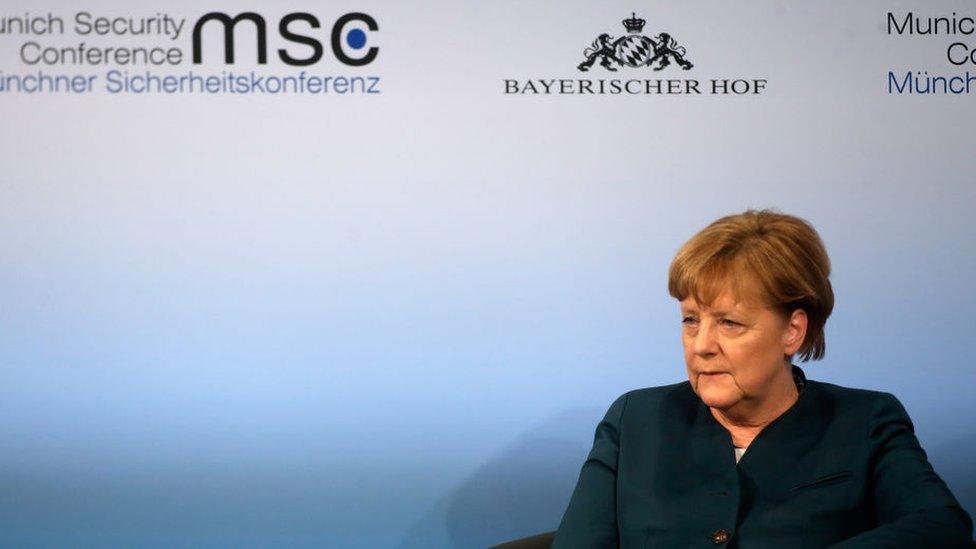
Angela Merkel is standing for a fourth term as Chancellor of Germany
His greatest strength is his unbridled passion to succeed, his weakness is a love of power and some of its trappings, which he demonstrated in Brussels. He also may stumble, having not yet declared his policy on refugees. And never underestimate the appeal of Angela Merkel and her safe pair of hands.
But the crowds are turning out for Mr Schulz, much as they have done for Mr Macron in France. If both men were to win, the outlook in Europe would change suddenly and dramatically.
Both are European integrationists who would look to deepen and strengthen the European project. Together, they would breathe new life into the Franco-German relationship that has always been the engine room of the EU.
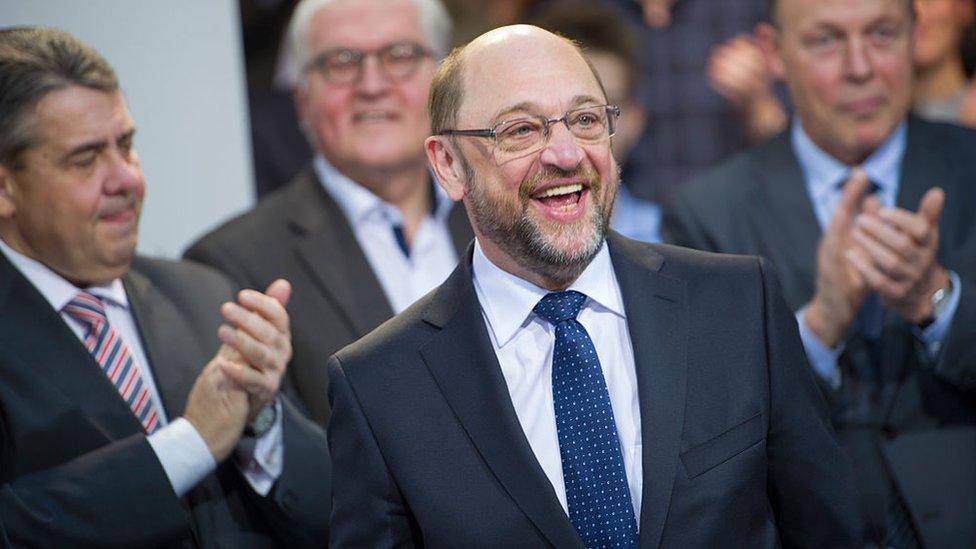
Martin Schulz is a former President of the European Parliament
Both, politicians from the centre-left, would loosen austerity further and favour spending on infrastructure projects to help countries such as Italy escape stagnation.
There would be little generosity from either man towards Britain as it starts to negotiate its exit from the European Union.
Mr Macron has said that it will be "pretty tough" on the UK and Mr Schulz would want to see the UK pays a price for its departure.
As this European election season begins, no-one yet knows what the Trump effect will be on Europe.
Will US President Donald Trump's victory encourage voters that they can support anti-immigration candidates who want powers returned to the nation states and, in the case of France, have a vote on membership of the European Union?
Or will President Trump deter voters from taking further risks?
Will voters turn away from the United States - whose president has openly discussed which country would leave the EU next - and incline towards building a Europe more confident in its own values and security?
The President of the European Council, Donald Tusk, has said Europe wants the US's "wholehearted and unequivocal support for the idea of a united Europe".
It may not be forthcoming, and the insecurity may yet prompt some voters to back deeper European integration rather the outsiders, the insurgents, the challengers.
For Europe, the script for 2017 is a long way from being written and the outcome may yet surprise.
- Published29 November 2016